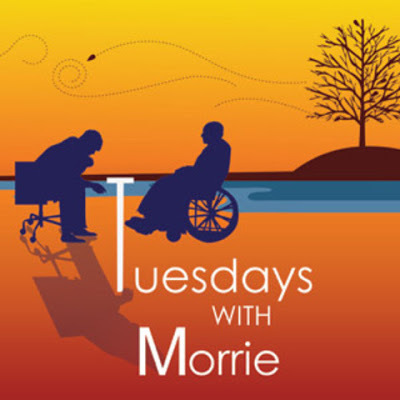Abhishek Ratna's Blog: The Donkey MBA, page 2
September 2, 2015
Life Lessons from Folktales - 3

In Your Hands (Jeweish Folktale)
Once there was a young rabbi who settled down in a community. He was eager to teach and make his mark in the world. After several months he had been invited to speak at the local temple and had taught a few students, but felt he was still in the shadow of the old rabbi who had been there for many years. The students flocked to learn from this old man and the young man had no followers at all.The young man knew that the only way to attract students was to discredit the old rabbi in front of all his students. The young man thought about it for many nights until at last he devised a plan. He decided to approach the old teacher during his morning lesson. The young rabbi would keep a live dove in his hand, behind his back. Then he would ask the old man if the bird he was holding was alive or dead. If the old man said dead, the young rabbi would let the dove fly free; if the old man said alive, the young man would break the bird’s neck with his fingers and present a dead bird to him. The young rabbi’s plan was foolproof.There was no way for the old teacher to win this contest. This would finally prove that the old man was not as wise as the people in the community thought.The morning came and, as the old man and his students sat in the shade of a huge tree, the young man approached. The young rabbi waited for just the right moment, and then he stood up and spoke.“Rabbi,” he started, “I have in my hand a bird. Is it alive or dead?”The old man looked up at him with a face that was serene, but also a bit sad.“That, my friend is entirely up to you,” he said.The young rabbi stood there for a moment. Finally, he let the bird go and sat down at the feet of the old man.
How many times do we see people pulling others down using unfair means? Don’t we see people using all kinds of short cuts to achieve quick success?
How many times do we feel jealous of our colleagues/coworkers without actually judging their abilities?
Don’t we just keep on comparing ourselves with others?
Don’t we often burn in the fire of envy without making any efforts to better ourselves?
"Comparisons are odious."
A comparison is almost always repulsive.
We must learn how to acknowledge greatness and good things in others. At the same time, our focus should be on making ourselves better.
Trying unfair means to get quick success or recognition will not do great favor in the long run.
Instead, cultivating a feeling of healthy competition and focusing on improving self is something which will result in lasting success and more importantly in happiness!
------------------------------------------------------------------------------------------Abhishek Ratna is the author of Amazon Bestseller - No Parking. No Halt. Success Nonstop!
About the book:
A self-help book for success at work! No Parking. No Halt. Success Nonstop! has 50 career lessons for today's 20teen generation.
Practical and comprehensive, the book often stretches to the point of 'cunning without harming'. Interspersed with quotes, stories and humor, it also breaks a few myths. The author treads the fine line between ethical and non-ethical. The author is able to convince the reader about the necessity for professional success.
Get your copy here -
Amazon: http://www.amazon.in/dp/8189930982
Flipkart: http://www.flipkart.com/no-parking-halt-success-non-stop-english/p/itmecm7jc8vjeydf?pid=9788189930981
-------------------------------------------------------------------------------------------
This series ‘Life Lessons from Folktales’ brings to you best of folktales from all over the world with the purpose of teaching you valuable and simple lessons for life.
Published on September 02, 2015 23:32
August 23, 2015
15 Most Valuable Life Lessons from ‘Tuesdays with Morrie’

‘Tuesdays with Morrie’ topped the New York Times Non-Fiction Bestsellers of 2000.
It is one of the most admired books of all times.
“Every page of this beautiful moving little book shines with the warmth of unembarrassed love.” —Rabbi Harold Kushner, author of When Bad Things Happen to Good People
"A wonderful book, a story of the heart told by a writer with soul." —The Los Angeles Times
"As sweet and nourishing as fresh summer corn...the book begs to be read aloud." — USA Today
"Mitch Albom's book is a gift to mankind."— Philadelphia Inquirer
Here are 15 Most Valuable Life Lessons from ‘Tuesdays with Morrie’:
1. “Accept what you are able to do and what you are not able to do.” 2. “Accept the past as past, without denying it or discarding it.” 3. “Learn to forgive yourself and to forgive others.” 4. “The culture we have does not make people feel good about themselves. And you have to be strong enough to say if the culture doesn’t work, don’t buy it.” 5. “So many people walk around with a meaningless life. They seem half-asleep, even when they’re busy doing things they think are important. This is because they’re chasing the wrong things. The way you get meaning into your life is to devote yourself to loving others, devote yourself to your community around you, and devote yourself to creating something that gives you purpose and meaning.” 6. “If you really want it, then you’ll make your dream happen.” 7. “I don’t allow myself any more self-pity than that. A little each morning, a few tears, and that’s all . . . . It’s horrible to watch my body slowly wilt away to nothing. But it’s also wonderful because of all the time I get to say goodbye.” 8. “Don’t cling to things, because everything is impermanent.” 9. “If you’ve found meaning in your life you don’t want to go back. You want to go forward. You want to see more, do more. You can’t wait until sixty-five.” 10. “The big things—how we think, what we value—those you must choose yourself. You can’t let anyone--or any society—determine those for you.” 11. “Be compassionate. And take responsibility for each other. If we only learned those lessons, this world would be so much better a place.” 12. “As long as we can love each other, and remember the feeling of love we had, we can die without ever really going away. All the love you created is still there. All the memories are still there. You live on—in the hearts of everyone you have touched and nurtured while you were here.” 13. The important questions have to do with love, responsibility, spirituality, awareness.14. “You’re not a wave, you are part of the ocean.”15. “There is no such thing as ‘too late’ in life.”
------------------------------------------------------------------------------------------Abhishek Ratna is the author of Amazon Bestseller - No Parking. No Halt. Success Nonstop!
About the book:
A self-help book for success at work! No Parking. No Halt. Success Nonstop! has 50 career lessons for today's 20teen generation.
Practical and comprehensive, the book often stretches to the point of 'cunning without harming'. Interspersed with quotes, stories and humor, it also breaks a few myths. The author treads the fine line between ethical and non-ethical. The author is able to convince the reader about the necessity for professional success.
Get your copy here -
Amazon: http://www.amazon.in/dp/8189930982
Flipkart: http://www.flipkart.com/no-parking-halt-success-non-stop-english/p/itmecm7jc8vjeydf?pid=9788189930981
Published on August 23, 2015 22:47
August 16, 2015
Life Lessons from Folktales - 2

The Master Storyteller(A Japanese folktale)
Many years ago, there was an old storyteller—a master of his art—making his way through the countryside. As the sun lowered in the sky, he knew, from the grumbling in his stomach and the aching in his bones, that he needed to find a place to rest that evening and, even more importantly, a meal. His prayers would soon be answered, for there at the foot of the hill was a dojo, a school of swordsmanship where young, aspiring samurai could study under a master swordsman. The custom in those ancient days was to earn a meal and lodging for the night by engaging one of the students in a duel using wooden swords. The old man looked thoughtfully at the dojo and then felt the age in his bones and the weariness in his muscles and knew what a duel would mean to a man of his years. After a moment, a smile crossed his lips and he walked to the door of the school and knocked.A young swordsman answered the door. “Grandfather, what can I do for you tonight?”The old man smiled and said, “I am here to challenge the master of this school.”The young man laughed and said, “Grandfather, why don’t you challenge one of our first year students?”“No, I am here to challenge the master.”“Why not one of our second year students?”“No, I insist on meeting the master in a duel.”The old man was brought into the training hall where all the students looked on with curiosity at this frail, old storyteller who had challenged their teacher. You see to challenge the master, a samurai, was to fight a duel with swords of steel, a duel to the death.Word was sent to the master of the school, a swordsman whose reputation was known throughout Japan. He came to the hall and bowed to the storyteller.At his side, in his obi, he carried the long sword, the katana of the samurai. He signaled for one of his students to hand a sword to the old storyteller. The storyteller placed the katana on the floor in front of him and never glanced at it again.The master of the school finally spoke. “I accept your challenge. Please take up your weapon and we shall begin.”Slowly, the swordsman drew his sword to strike. As this happened, the old man finally spoke.“Once, a long time ago, there was a small village near a beautiful stream at the foot of a mighty mountain. At the end of the village there was a cottage where an old man lived. Every day he would go to the stream and listen as the fish told him the stories of the places they had traveled, the people they had seen, and the stories they had heard on their journey. Then the old man would go to the village and tell his friends his new stories as they drank their morning tea. This …”As the old storyteller was speaking, the master of the school lowered his sword and bowed. “You have defeated me,” he said to the weary traveler.The students shouted. “How could he have won? He never struck a blow.He never even picked up a sword.”The samurai turned and looked at them and smiled. “How many times have I told you that to win in battle you must stay in the present, you must stay in the moment. This man took me to a place far away and long ago. He could have slain me at will.”And so it was and so it will be for all those who tell tales and stories from their heart, and all those who listen.
How much do we all lose everyday just because we are not living in the present?Playing to and capitalizing on your strengths is a must for success. For the story teller his stories were his strength. And he used his stories to win bread for himself. Do we know our strengths? Do we make the most of it?
The biggest lesson we learn from this folktale is that be it professional world or personal world, to win we must stay in the present, WE MUST STAY IN THE MOMENT!
This sounds simple but it difficult to achieve. More often than not we end up living in the future or dwelling in the past. We are too worried about what may happen tomorrow or we keep thinking about what had happened in the past.
In professional world this means loss of opportunities. One who is not in the present will never be able to perform at the best of his/her abilities. The individual will not be able to grab the opportunities that come his/her way. There will be lack of efficiency and the pace of growth will slow down.
Just think of those instances where you had to repeat the same instructions to someone who was not paying attention. Instances where someone missed on a critical point and the work had to be re-done. Instances where multiple meetings were held, discussing the same topic because participants were not able to be ‘in the moment’ to take a concrete decision. These are just few examples of how much we end up losing professionally just because we are not in the moment.
There are repercussions in the personal sphere as well. If we don’t live in the present we end up being unhappy. We do not enjoy small moments of happiness life has to offer. We ruin our relationships by not paying attention to our dear ones.
It definitely works wonders when we start living in the present.
Living ‘in the moment’ is the key to success – personally and professionally!
------------------------------------------------------------------------------------------Abhishek Ratna is the author of Amazon Bestseller - No Parking. No Halt. Success Nonstop!
About the book:
A self-help book for success at work! No Parking. No Halt. Success Nonstop! has 50 career lessons for today's 20teen generation.
Practical and comprehensive, the book often stretches to the point of 'cunning without harming'. Interspersed with quotes, stories and humor, it also breaks a few myths. The author treads the fine line between ethical and non-ethical. The author is able to convince the reader about the necessity for professional success.
Get your copy here -
Amazon: http://www.amazon.in/dp/8189930982
Flipkart: http://www.flipkart.com/no-parking-halt-success-non-stop-english/p/itmecm7jc8vjeydf?pid=9788189930981
-------------------------------------------------------------------------------------------
This series ‘Life Lessons from Folktales’ brings to you best of folktales from all over the world with the purpose of teaching you valuable and simple lessons for life.
Published on August 16, 2015 23:57
The Donkey MBA
'A blog by Abhishek Ratna' on Leadership, Management and Career!
'A blog by Abhishek Ratna' on Leadership, Management and Career!
...more
- Abhishek Ratna's profile
- 7 followers



